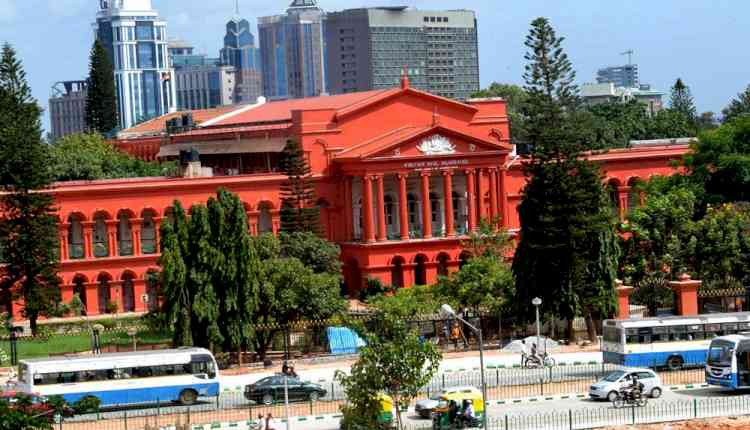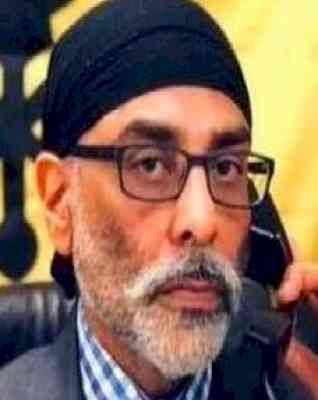K'taka Hijab crisis: HC adjourns hearing to Wed, govt declares 3-day school holiday
Amid tension and violence at educational institutions in the state, the Karnataka High Court on Tuesday adjourned, to Wednesday, the hearing of petitions on questioning denial of permission to hear hijab to classrooms by Udupi Pre-University College students and others for Wednesday.

Bengaluru, Feb 8 (IANS) Amid tension and violence at educational institutions in the state, the Karnataka High Court on Tuesday adjourned, to Wednesday, the hearing of petitions on questioning denial of permission to hear hijab to classrooms by Udupi Pre-University College students and others for Wednesday.
The single bench of Justice Krishna S. Dixit also requested the student community to maintain peace in the state. The court will take up the matter on Wednesday at 2.30 p.m.
Meanwhile, considering the volatile situation in the state against the backdrop of the hijab crisis, the BJP government has declared a three-day holiday for schools and colleges starting from Wednesday. Chief Minister Basavaraj Bommai has requested the students to wait until the court order and not to get provoked.
"I appeal to all students, teachers and management of schools and colleges as well as people of Karnataka to maintain peace and harmony. I have ordered the closure of all high schools and colleges for the next three days. All concerned are requested to cooperate," he said.
At the hearing on Tuesday, the bench asked counsel to present their arguments briefly, saying arguments and counter-arguments can't be heard till the end of the academic year.
Justice Dixit has also observed that the court has confidence in the discretionary power of the public and students.
Advocate General Prabhuling Navadagi, appearing for the government, will present his arguments before the bench on Wednesday. However, the bench did not accept his request to give an interim order to stop protests until the matter is heard by the court.
Counsel appearing for petitioners seeking permission to wear hijab submitted to the court that the Kerala High Court judgment, ruling against wearing of hijab, is related to the issue of a Christian college, and has no links with the Karnataka case.
"The religious right is as much the right of students also. The state government has referred the verdict of Bombay High Court in Fathima Sayeed case. In that case Fathima had sought relief from the Bombay High Court as she was not allowed to attend college in hijab. The court had ruled against her appeal as it was a girl's college. That cannot be implied here as the state government has implemented the rule in all colleges," Devdutt Kamath, counsel for the petitioner, said.
"Hijab is an integral part of Islam. It is used to cover the neck and hair. All Muslim scholars have agreed upon this fact. The government can say wearing hijab is right or wrong but it can't prevent students from wearing hijab. If the government wants, it can give a colour to the issue. All religious faiths could also be dubbed in a certain way. The government is giving colour to the hijab issue in the pretext of maintaining a law and order situation. If a Sikh is wearing a turban, Brahmin is wearing a tilak, how is the law and order situation affected?" he questioned.
"Can wearing of tilak be stopped if anyone is feeling bad? The act of wearing a hijab to sit in a separate room is a violation of fundamental rights. Article 14 is there for our protection. Everyone is equal before the law," he said.
At this stage, Advocate General Navadagi objected, alleging counsel is making charges without any basis and it can prove dangerous for the society. He said that one should not give statements which indicate that there are attacks on all hijab-wearing students.
Kamath stated that it is "religious untouchability" and a separate affidavit has been filed on that matter. He also asked the government counsel not to set aside his right to freedom of expression. Quoting the verdicts of Malaysia and US courts, he stressed that the sweeping decision to ban protests would be against Article 19 of the Constitution.
The bench, at this point, observed that it is important to see whether the same feelings prevail here, while the judgments of foreign countries are being quoted.



 IANS
IANS 










